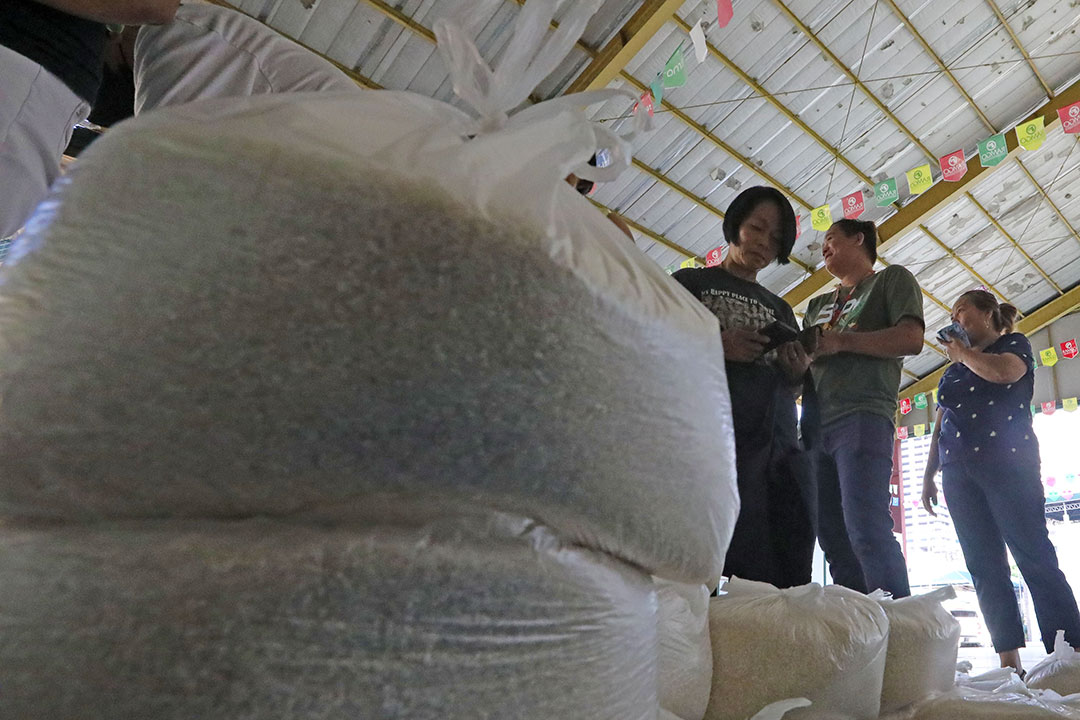Gov’t urged to prepare for expected surge in rice imports

THE MARCOS ADMINISTRATION should ensure that the lower tariffs on imported rice will not result in a further decline in rice self-sufficiency, the Philippine Chamber of Agriculture and Food, Inc. (PCAFI) said.
In a letter to President Ferdinand R. Marcos, Jr., PCAFI President Danilo V. Fausto aired the group’s “grave concerns” over the recent issuance of Executive Order No. 62 which slashed tariffs on rice to 15% until 2028.
“The challenge to EO 62 is how to implement it without a further decline in self-sufficiency in this age of climate change and geopolitical disruptions,” he said.
Mr. Fausto said the government should reassure the rice sector by preparing for a surge in rice imports through the Special Rice Safeguard under Republic Act (RA) No. 11203 or the Rice Tariffication Law (RTL).
“This means determining the volume or price triggers, as the case may be, as soon possible. The last administration, ignoring the said mandatory provision, did not even bother to compute for either one,” he said.
Mr. Fausto noted the RTL was implemented by the previous administration to benefit traders, to the detriment of consumers and rice farmers. He also claimed the law decreased the country’s self-sufficiency to 75%-80% from 90%-95%.
Under the law, a special safeguard duty on rice “shall be imposed” in order to protect the Philippine rice industry from sudden or extreme price fluctuations.
This is in accordance with RA 8800, or the Safeguard Measures Act, as well as its implementing rules and regulations, the law stated.
Mr. Fausto said that EO 62 has generated “controversy” due to the non-conduct of “genuine and timely consultations.” He said the National Economic and Development Authority’s (NEDA) insistence that the hearings of the Tariff Commission last year constitute compliance with due process “damages its credibility as a crisis manager.”
He said that the system is flawed as NEDA, which proposed the tariff cuts, has jurisdiction over the designated fact-finding body, the Tariff Commission.
“The sectors are left with no choice but to file a case on the issue of due process. By NEDA’s logic, it can go back to hearings conducted 10 or 20 years ago and insist that the proceedings therein would constitute compliance as long as they involved the same sector,” he said.
“This is dangerous. There will be no more new hearings,” he added.
Raul Q. Montemayor, national manager of the Federation of Free Farmers, told BusinessWorld in a Viber message that the Special Rice Safeguard is “very weak.”
“The additional tariff cannot exceed 1/3 of the applied tariff. In the case of rice, the maximum additional tariff we can apply is 5%, and it can be applied only from the time we breach the trigger up to the end of the year, even if the import surge spills over to the next year,” Mr. Montemayor said.
“What will be more effective are the general safeguards, where there are no limitations on the additional tariff that can be imposed, and which can be put in place from 200 days up to 2 years. But this needs real-time data to determine if there is a surge and that the surge is hurting farmers,” he added.
Rizal Commercial Banking Corp. Chief Economist Michael L. Ricafort said that lower rice import tariffs would mean a 20% discount on imported rice.
“Rice accounts for nearly 9% of the consumer price index (CPI) basket, so imported rice accounts for nearly 1.8% of the CPI basket,” said Mr. Ricafort in a Viber message.
“Thus, lower imported rice tariffs and prices would help reduce headline inflation by about 0.36, on a standalone basis, but more if locally produced rice prices go down as a result of lower prices and tariffs on imported rice,” he added.
“Thus, average inflation towards 3% becoming more feasible, going forward.”
Asked about the imposition of safeguard duties, Mr. Ricafort said that it would “effectively increase the price of imported rice and would help support farmgate palay prices and the incomes of palay farmers.”
Meanwhile, Mr. Fausto also recommended the allocation of more financial resources to help the agricultural sector through “enhanced guarantees for credit and insurance for farmers and millers.”
The government should also create programs to allow local government units to procure agricultural products directly from farmers and cooperatives during “times of surplus or market failure,” he said.
Mr. Fausto said the government should boost the National Food Authority’s (NFA) financial and storage capacity to buy more palay.
He also criticized the EO’s provision that allows the NEDA to review the tariffs on rice every four months.
“NEDA is a very ideological agency. It has a well-known bias against local producers, especially those in agriculture and fisheries,” he said. — J.I.D.Tabile



